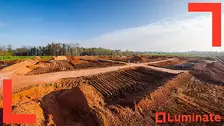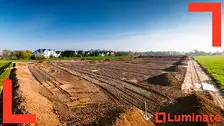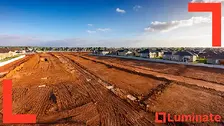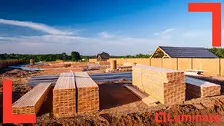The Stages of Property Development: A Detailed Guide for New Zealand Developers
 By
Trent Bradley
·
10 minute read
By
Trent Bradley
·
10 minute read

Successful property development requires careful progression through distinct stages, each with specific objectives, challenges, and critical success factors. Understanding these stages helps developers plan effectively, manage risks, and optimise returns throughout the development process. This comprehensive guide explores each stage of property development in the New Zealand context.
Table of Contents:
- Stage 1: Opportunity Identification and Initial Assessment
- Stage 2: Detailed Feasibility Analysis and Business Planning
- Stage 3: Site Acquisition and Legal Structure
- Stage 4: Planning and Design Development
- Stage 5: Regulatory Approval and Consenting
- Stage 6: Development Finance and Funding
- Stage 7: Pre-Construction and Project Setup
- Stage 8: Construction and Infrastructure Implementation
- Stage 9: Marketing and Pre-Sales
- Stage 10: Completion and Settlement
- Success Factors Across All Stages
- Key Takeaways
- Frequently Asked Questions
Stage 1: Opportunity Identification and Initial Assessment
The development journey begins with identifying and evaluating potential opportunities in the marketplace.
Market Research and Analysis: Successful developers continuously monitor market conditions, demographic trends, and regulatory changes that create development opportunities. This involves studying population growth patterns, employment trends, infrastructure investment, and housing supply shortages across different regions and market segments.
Site Identification: Look for properties with development potential, considering factors such as zoning flexibility, site characteristics, accessibility, and neighbourhood dynamics. Prime opportunities often exist where current land use doesn't maximise site potential under existing or proposed planning frameworks.
Preliminary Feasibility Assessment: Conduct initial feasibility analysis including rough cost estimates, potential revenue calculations, and basic risk assessment. This high-level analysis helps determine whether opportunities warrant detailed investigation without significant upfront investment.
Initial Due Diligence: Gather basic information including LIM reports, title searches, zoning details, and preliminary site inspections. This initial due diligence identifies obvious constraints or opportunities before committing to detailed feasibility analysis.
The opportunity identification stage typically spans several weeks to months, depending on market knowledge and opportunity complexity. Success at this stage requires strong market awareness, analytical skills, and the discipline to focus on genuinely viable opportunities.
Stage 2: Detailed Feasibility Analysis and Business Planning
Once promising opportunities are identified, detailed feasibility analysis determines project viability and structures the business case for development.
Comprehensive Market Analysis: Conduct detailed analysis of target market segments, competition, pricing trends, and absorption rates. This analysis should cover both current market conditions and projected conditions throughout the development timeline.
Site Analysis and Constraints Assessment: Commission detailed site investigations including topographical surveys, geotechnical reports, contamination assessments, and archaeological evaluations where required. These investigations inform design decisions and cost estimates while identifying potential project risks.
Development Concept and Design: Work with architects and planners to develop preliminary design concepts that optimise site potential while meeting market requirements and regulatory constraints. Consider various development scenarios to identify the optimal approach.
Detailed Financial Modelling: Create comprehensive financial models including detailed cost estimates, revenue projections, cash flow analysis, and sensitivity testing. Include all development costs from land acquisition through to final settlement, with appropriate contingencies for unforeseen expenses.
Risk Assessment and Mitigation: Identify all potential risks including market risks, construction risks, regulatory risks, and financial risks. Develop specific mitigation strategies for each identified risk and incorporate risk management costs into project budgets.
This stage typically requires 2-4 months and significant professional input. The quality of feasibility analysis directly impacts all subsequent development stages and overall project success.
Stage 3: Site Acquisition and Legal Structure
With feasibility confirmed, the next stage involves securing the development site and establishing appropriate legal frameworks.
Negotiation and Purchase Strategy: Structure site acquisition to minimise risk while securing development rights. This may involve conditional purchase agreements, option agreements, or staged acquisition strategies depending on project complexity and seller requirements.
Legal Entity Structure: Establish appropriate legal structures for the development considering tax implications, liability protection, investor requirements, and exit strategies. Many developers use limited liability companies, unit trusts, or partnership structures depending on project scale and funding sources.
Professional Team Assembly: Engage core professional team members including solicitors, accountants, planners, architects, and engineers. Building strong professional relationships early provides access to expertise and resources throughout the development process.
Detailed Due Diligence: Complete comprehensive due diligence including all technical investigations, legal reviews, and financial confirmations. This detailed due diligence must be completed before removing purchase conditions or committing to development expenditure.
Site acquisition typically takes 1-3 months, though complex negotiations or due diligence requirements may extend this timeframe. Proper legal structure and professional team assembly are crucial for subsequent development stages.
Stage 4: Planning and Design Development
The planning and design stage transforms development concepts into detailed proposals ready for regulatory approval.
Design Development: Work with architects and engineers to develop detailed design proposals that optimise development potential while meeting regulatory requirements and market expectations. This process often involves multiple design iterations incorporating stakeholder feedback and constraint resolution.
Planning Applications: Prepare comprehensive planning applications including resource consent applications, building consent applications, and any other required approvals. New Zealand's complex regulatory environment often requires expert planning and legal input to navigate successfully.
Stakeholder Engagement: Engage with council planners, community groups, neighbours, and other stakeholders early in the planning process. Proactive engagement can prevent objections and streamline approval processes while building community support for development proposals.
Engineering and Infrastructure Design: Develop detailed engineering designs for all infrastructure requirements including roading, water supply, wastewater, stormwater, and utilities. Coordinate with council engineers and utility providers to ensure compliance with standards and capacity requirements.
Planning and design typically requires 3-6 months, though complex projects or challenging regulatory environments may require longer timeframes. Quality planning and design work directly impacts consent success and construction efficiency.
Stage 5: Regulatory Approval and Consenting
Obtaining regulatory approvals represents one of the most critical and potentially time-consuming stages of property development.
Consent Processing: Submit planning applications and work closely with council planners throughout the assessment process. Be prepared to provide additional information, respond to concerns, and potentially modify proposals to address regulatory requirements.
Public Consultation: Depending on project scale and effects, consents may require public or limited notification allowing community submissions. Manage consultation processes professionally and address legitimate concerns constructively.
Hearings and Appeals: If consents proceed to hearings, present compelling cases supported by expert evidence. Consider mediation or negotiation where appropriate to resolve disputed issues without formal hearing processes.
Consent Conditions: Review consent conditions carefully and ensure compliance requirements are understood and budgeted. Some conditions may require specialist input or ongoing monitoring throughout development.
Consent processing typically takes 6-18 months depending on project complexity, council efficiency, and whether public notification is required. Building positive relationships with council staff and addressing concerns promptly can help streamline approval processes.
Stage 6: Development Finance and Funding
With consents approved, securing appropriate development finance becomes the priority for project implementation.
Finance Applications: Prepare comprehensive finance proposals including detailed project information, financial projections, professional team credentials, and risk mitigation strategies. Development finance requires more detailed documentation than standard property loans.
Funding Structure: Develop appropriate funding structures combining debt and equity to optimise returns while managing risk. Consider various funding sources including bank development loans, private lending, investor equity, and potentially government funding programs.
Security and Documentation: Complete detailed loan documentation including security registrations, personal guarantees, and construction contracts. Ensure all legal requirements are met before accessing development funding.
Staged Funding Arrangements: Establish funding release schedules aligned with development milestones. Most development loans release funds in stages corresponding to project progress, requiring careful cash flow management and progress reporting.
Development finance typically takes 1-3 months to arrange, though complex projects may require longer preparation periods. Strong relationships with specialist development finance providers can significantly streamline this process.
Stage 7: Pre-Construction and Project Setup
Before construction begins, careful project setup ensures smooth implementation and effective risk management.
Contractor Selection and Engagement: Select experienced contractors with appropriate skills, insurance coverage, and financial stability. Consider both fixed-price and cost-plus contracting arrangements depending on project characteristics and risk preferences.
Project Management Systems: Establish project management systems covering progress monitoring, quality control, cost management, and stakeholder communication. Clear systems and regular reporting prevent problems and ensure project objectives are met.
Site Establishment: Prepare development sites including access arrangements, temporary services, security measures, and health and safety systems. Proper site establishment prevents delays and safety issues during construction.
Regulatory Compliance: Ensure all pre-construction consent conditions are satisfied and required approvals are in place. This may include engineering plan approvals, building consent modifications, or specialist permits.
Pre-construction setup typically requires 1-2 months but is crucial for subsequent construction success. Thorough preparation prevents costly delays and ensures projects start with clear objectives and systems.
Stage 8: Construction and Infrastructure Implementation
The construction stage transforms approved plans into physical development, requiring intensive project management and quality control.
Infrastructure Development: For subdivision projects, begin with infrastructure installation including earthworks, roading, utilities, and drainage systems. Coordinate with council inspections and utility providers throughout infrastructure construction.
Building Construction: For projects involving building construction, implement detailed construction programs with regular progress monitoring and quality control. Maintain close communication with contractors, consultants, and regulatory authorities throughout construction.
Progress Monitoring and Reporting: Implement regular progress reporting systems for internal management and external stakeholders including financiers and investors. Address variations and issues promptly to prevent cost overruns and delays.
Quality Assurance: Maintain rigorous quality control throughout construction including regular inspections, testing, and compliance verification. Poor quality control can result in costly rectification work and delayed project completion.
Construction typically represents the longest development stage, ranging from 6 months for simple subdivisions to 2+ years for complex building projects. Effective project management and quality control are essential for successful outcomes.
Stage 9: Marketing and Pre-Sales
Successful marketing begins early and continues throughout development, building market awareness and securing sales commitments.
Marketing Strategy Development: Develop comprehensive marketing strategies that effectively communicate project benefits to target markets. Consider timing, channels, messaging, and budget requirements for optimal market impact.
Pre-Sales Programs: For larger projects, implement pre-sales programs that generate buyer commitments before construction completion. Pre-sales help secure development finance and reduce market risk, though they require careful legal documentation and buyer management.
Sales Team and Systems: Engage experienced sales professionals and establish efficient sales processes including contracts, settlements, and customer communication systems. Strong sales management directly impacts project returns and buyer satisfaction.
Market Monitoring and Adjustment: Monitor market conditions throughout development and adjust strategies as required. Flexibility in pricing, marketing approach, and product features can optimise returns in changing market conditions.
Marketing and sales often run parallel with construction and may continue for months after completion. Early marketing investment and professional sales management typically deliver superior returns compared to reactive approaches.
Stage 10: Completion and Settlement
The final development stage involves completing all construction and regulatory requirements while settling with purchasers.
Practical Completion and Inspections: Achieve practical completion for all construction elements and obtain required certificates including Code Compliance Certificates, Engineering Certificates, and any other regulatory approvals.
Title Creation and Registration: For subdivision projects, complete all LINZ requirements and obtain new titles for individual lots. This process can take several months and requires coordination with surveyors and LINZ systems.
Settlement Coordination: Coordinate settlements with purchasers ensuring all legal and financial requirements are met. This includes final inspections, finance confirmations, and legal documentation completion.
Project Closure and Review: Complete final project accounting, discharge development loans, distribute returns to investors, and conduct comprehensive project reviews. Document lessons learned and relationship outcomes for future development success.
Completion and settlement typically takes 2-6 months depending on project complexity and settlement schedules. Professional management of completion processes ensures successful project closure and positive stakeholder relationships.
Development Stage Timeline Overview
| Development Stage | Typical Duration | Key Activities | Critical Success Factors |
|---|---|---|---|
| Stage 1: Opportunity Identification | Several weeks to months | Market research, site identification, preliminary feasibility | Market awareness, analytical discipline |
| Stage 2: Feasibility Analysis | 2-4 months | Detailed analysis, site investigations, financial modeling | Comprehensive assessment, professional input |
| Stage 3: Site Acquisition | 1-3 months | Negotiation, legal structure, team assembly | Risk mitigation, due diligence |
| Stage 4: Planning & Design | 3-6 months | Design development, planning applications, stakeholder engagement | Quality design work, early engagement |
| Stage 5: Regulatory Approval | 6-18 months | Consent processing, consultation, hearings | Council relationships, professional presentation |
| Stage 6: Development Finance | 1-3 months | Finance applications, funding structure, documentation | Specialist expertise, detailed proposals |
| Stage 7: Pre-Construction Setup | 1-2 months | Contractor selection, project systems, site preparation | Thorough preparation, clear systems |
| Stage 8: Construction | 6-24+ months | Infrastructure, building construction, quality control | Project management, quality assurance |
| Stage 9: Marketing & Sales | Parallel with construction | Marketing strategy, pre-sales, sales management | Early investment, professional sales |
| Stage 10: Completion & Settlement | 2-6 months | Practical completion, title creation, settlements | Professional management, project closure |
Success Factors Across All Stages
Certain factors contribute to success across all development stages and deserve continuous attention throughout development projects.
Professional Expertise: Engaging experienced professionals and maintaining strong working relationships provides access to specialist knowledge and resources essential for navigating complex development processes.
Risk Management: Implementing comprehensive risk management approaches including appropriate insurance, legal structures, and contingency planning protects against adverse outcomes while enabling calculated risk-taking for superior returns.
Financial Management: Maintaining detailed financial controls, regular reporting, and conservative cash flow management prevents financial difficulties while optimising returns and stakeholder confidence.
Stakeholder Communication: Regular, transparent communication with all stakeholders including investors, contractors, councils, and purchasers builds trust and facilitates problem resolution when issues arise.
Key Takeaways
- Property development progresses through 10 distinct stages from opportunity identification to completion, with typical total timelines ranging from 12-36 months depending on project complexity
- Detailed feasibility analysis requiring 2-4 months of comprehensive investigation directly impacts all subsequent stages and determines overall project success
- Regulatory approval represents the most time-consuming stage at 6-18 months, with proactive council engagement and stakeholder consultation critical for streamlining approvals
- Development finance requires specialist expertise and 1-3 months preparation, with staged funding releases aligned to project milestones demanding careful cash flow management
- Construction quality control and progress monitoring prevent costly rectification work, with infrastructure and building phases spanning 6-24+ months requiring intensive project management
- Success factors spanning all stages include professional expertise, comprehensive risk management, detailed financial controls, and transparent stakeholder communication
Frequently Asked Questions
How long does the entire property development process take in New Zealand?
Total development timelines typically range from 12 months for simple subdivisions to 36+ months for complex building projects. Key variables include consenting timeframes (6-18 months), construction complexity (6-24+ months), and market conditions affecting pre-sales and settlements. Experienced developers with strong professional teams and council relationships can often compress timelines.
What's the most critical stage of property development?
Detailed feasibility analysis in Stage 2 is arguably most critical, as quality feasibility work determines project viability and informs all subsequent decisions. Poor feasibility analysis leads to cost overruns, timeline delays, and potentially project failure. Investing 2-4 months in comprehensive feasibility including market analysis, site investigations, and detailed financial modeling prevents costly mistakes later.
How much equity do I need to start a property development project?
Most development finance requires 20-30% equity of total project costs including land acquisition and development expenses. Small subdivision projects might require $150,000-$300,000 equity, while larger residential developments need $500,000+. Working with specialist development finance brokers helps structure funding to optimize equity requirements and leverage existing property equity.
Can I manage a development project myself or do I need a project manager?
First-time developers or those with limited construction experience should engage professional project managers to oversee construction stages. Experienced developers with strong contractor relationships may manage smaller projects themselves. Professional project management typically costs 3-5% of construction value but prevents costly errors and ensures quality outcomes, often paying for itself through avoided problems.
What happens if I can't secure resource consent?
Consent declines can be appealed through the Environment Court, though this adds significant time and cost. Alternatively, modify proposals to address council concerns and reapply, or exit the project if fundamental issues prevent viable development. Structuring conditional purchase agreements and conducting thorough pre-application discussions with council planners minimizes consent risks.
How do I find good development opportunities?
Successful developers continuously monitor market conditions, build relationships with real estate agents and property owners, study council planning documents for rezoning opportunities, and analyze demographic trends indicating future demand. Opportunities often exist where current land use doesn't maximize site potential under existing or proposed planning frameworks, particularly in growth areas with infrastructure investment.
What's the difference between resource consent and building consent?
Resource consent addresses planning and environmental effects under the Resource Management Act, covering land use, subdivision, and development impacts. Building consent ensures construction complies with Building Code requirements for structural integrity, safety, and weathertightness. Most developments require both consents, obtained through separate but sometimes parallel processes with different council departments.
Should I sell properties during construction or wait until completion?
Pre-sales during construction help secure development finance and reduce market risk, though require careful contract documentation and buyer management. Selling completed properties typically achieves higher prices and attracts more buyers, but carries market risk if conditions deteriorate during construction. Many developers use blended strategies with sufficient pre-sales for finance security while retaining some stock for post-completion premium pricing.
Working with Development Finance Specialists
The complexity and risk of property development requires specialist financing expertise that understands each development stage and can provide appropriate support throughout the entire process.
At Luminate Finance, we work alongside developers through every stage of development, providing expert guidance, flexible funding solutions, and industry connections that contribute to successful project outcomes. Our deep understanding of New Zealand's development environment and comprehensive approach to client support has helped numerous developers achieve their objectives across diverse project types and market conditions.
Ready to progress through your development stages with expert support? Contact Luminate Finance today to discuss how our specialist development finance solutions can support your success from initial opportunity through to final settlement.

Trent Bradley
Trent Bradley is a New Zealand financial advisor specializing in property-backed finance and investment consulting. With over 26 years of experience running his mortgage broking business, he has helped wholesale investors access high-yield property-backed loan opportunities. For the past 12 years, Trent has led Luminate Finance, a New Zealand finance company dedicated to connecting investors with secure property investment solutions.


































.png?//48413319.fs1.hubspotusercontent-ap1.net/hubfs/48413319/Featured%20images%20(14).png&width=247&height=126&name=Featured%20images%20(14).png)



